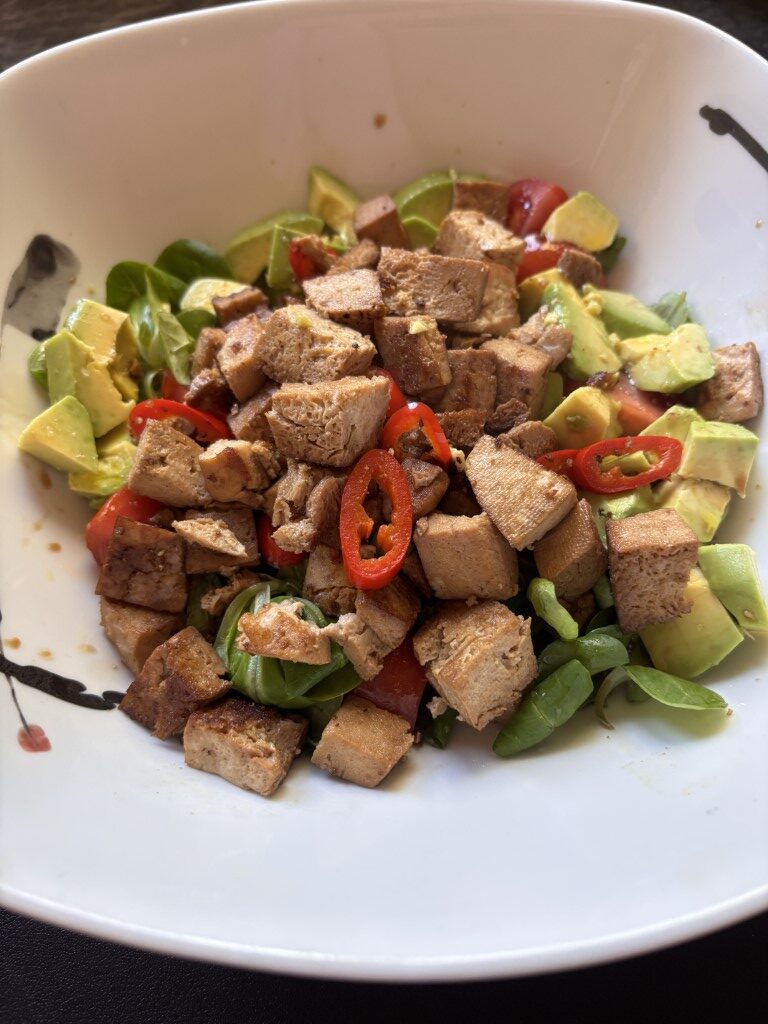Eating vegan is considered chic and trendy.
The main arguments are: animal welfare, environmental protection, and better health. I’ve met people who think they’re superior because they eat vegan.
But I’ve also met those who felt weak and drained while on a vegan diet. As you can see, opinions are divided on this topic.
Here view my favorite vegan protein shake on Amazon.com
Disclosure: this post contains affiliate links. As an Amazon Associate, I may from qualifying purchases. There are no extra costs for you.
It is undisputed that a plant-based diet has many advantages. Primarily because of the vitamins and secondary micronutrients it contains, which have a positive effect on health.
The presence of trace elements and low fat content are further advantages. Plant-based oils are also excellent for maintaining healthy and elastic blood vessels.
I would like to examine three controversial aspects in more detail.
– Animal welfare:
To that end: humans have been omnivores since the Stone Age. They are not predators like lions, which only eat meat, nor horses, which exclusively eat grass and hay. The structure of human teeth proves this.
If humans did not eat animals and the natural law of “eat or be eaten” in the animal kingdom did not apply, there would be uncontrolled reproduction, disease, and competition among animals.
Furthermore, the land used to grow corn and soy as a source of plant-based protein for feeding the world’s population displaces many animal species, which then have fewer offspring.
– Environmental protection:
It is true that factory farming produces CO2, which contributes to further global warming. Figures show that approximately 5% of total human-caused CO2 emissions are attributable to meat production.
Feeding the animals brown algae would drastically reduce this amount. Natural animal husbandry on pastures and organic farms significantly lowers CO2 emissions.
– Improved health:
Note: A purely vegan diet can lead to a deficiency in B vitamins, which must be compensated for with supplements.
The biological efficiency of purely plant-based protein is around 50%, while that of animal protein reaches 70-80%. This means that of every 100 grams of protein consumed, 70 grams are absorbed and utilized by the body. An exception is the chicken egg, which is utilized by the body in its entirety.
Another point to consider: The trace element iron is also found in plants, but it is not absorbed as efficiently as iron from red meat. Iron is essential for the formation of red blood cells.
Therefore, I believe that the healthiest way to eat is through variety. My Anti-Aging Recipes — Fast and Healthy
Meals should contain foods of plant and animal origin – in a ratio of approximately 3:1. This includes sufficient protein, about 1 gram per kilogram of body weight, plant-based fats, and nuts.
Here are my 10 tips for a healthy nutrition:
1. Fresh fruits and vegetables are a must: a salad every day, a piece of fruit with every meal.
2. Once a week, eat a 200-gram steak of beef, veal, or lamb. Pork should be eaten in moderation due to its arachidonic acid content, which promotes inflammation.
3. Eat deep-sea fish twice a week. It’s high in protein and contains iodine, which is essential for thyroid health.
4. Eat poultry once a week: It’s high in protein and low in fat—without the skin.
5. Lightly steamed vegetables as a side dish. A small amount of potatoes now and then.
6. Once a week, have a tofu dish with rice and stir-fried vegetables.
7. Use plant-based fats daily, except for palm oil. Add them to your salad or simply spoon them on.
8. Eat a handful of nuts every day.
9. Keep cooking times as short as possible. 15 minutes is ideal.
10. If pizza, pasta, or chocolate are tempting, that’s no problem. They’re fine once in a while. But then, enjoy them properly!
Voilà!
Disclosure: This post contains affiliate links. As an Amazon Associate, I earn from qualifying purchases.There are no extra costs for you.


